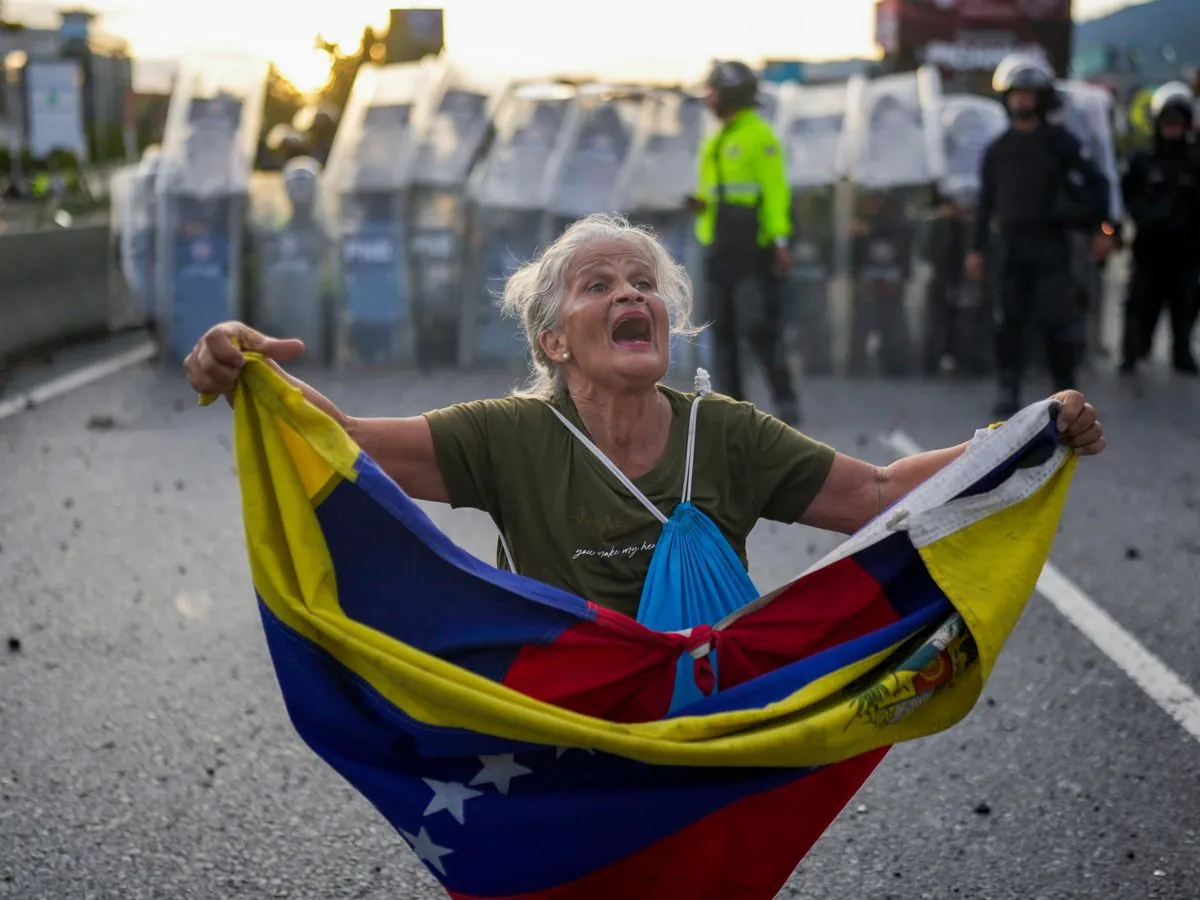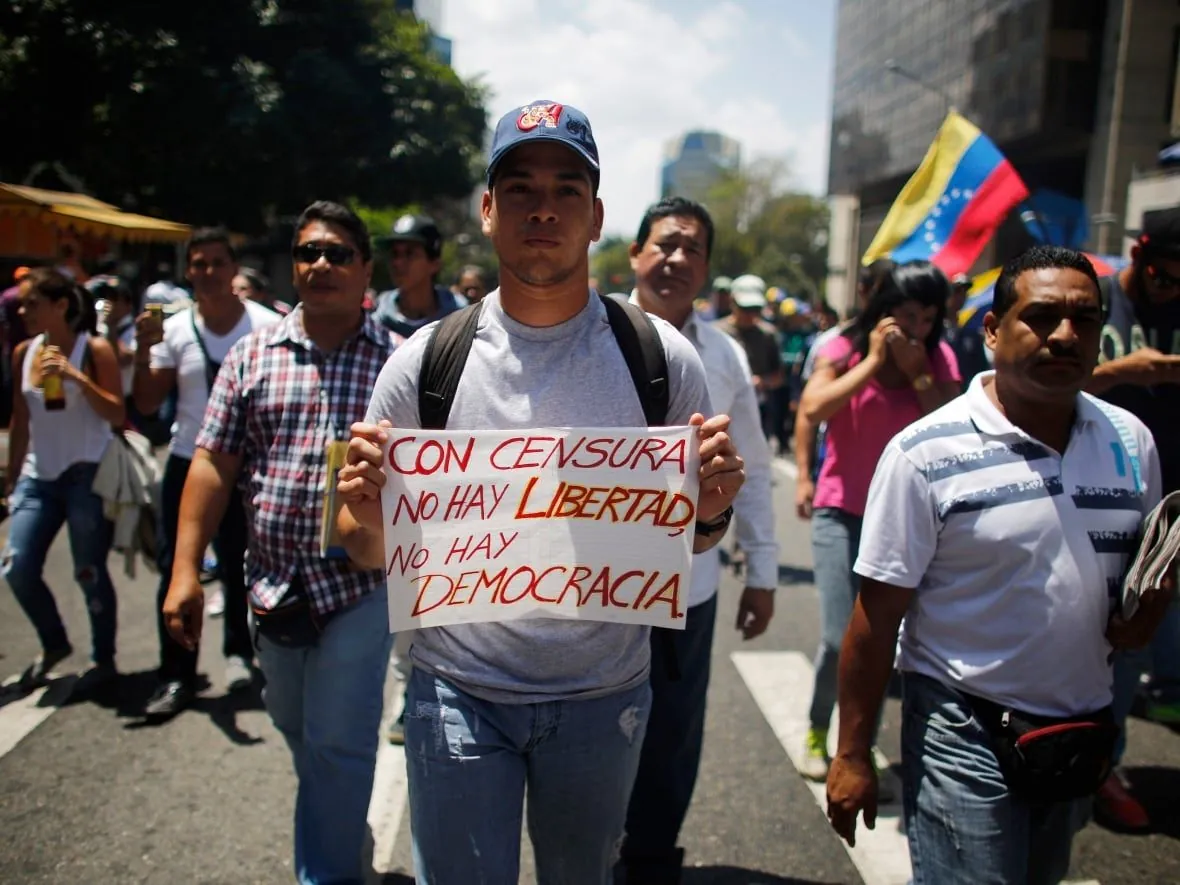Venezuela's Disputed Election Sparks Nationwide Protests
Venezuela faces turmoil as citizens protest alleged election fraud. International community divided on recognizing results. Economic instability and potential repression loom as Maduro's government faces widespread opposition.

Venezuela finds itself in a state of upheaval following a contentious presidential election held on May 26, 2024. The vote, which took place 26 years after Hugo Chávez's initial election in 1998, has reignited tensions in the South American nation.
Nicolás Maduro, who has led Venezuela since 2013, claimed victory with 51% of the vote according to the National Electoral Council (CNE). However, opposition candidate Edmundo González and his supporters dispute this result, citing exit polls and opposition tallies that suggest a different outcome.
The aftermath has seen widespread protests across Venezuela, with citizens from various socioeconomic backgrounds uniting against what they perceive as electoral fraud. This marks a shift from previous divisions, which were primarily along class lines.

The government's response to the unrest has been severe. Reports indicate that security forces and pro-government militias, known as colectivos, have arrested hundreds and caused multiple fatalities. This crackdown has further fueled international concern about the state of democracy in Venezuela.
"This is not a 'civil war'... at least not in the traditional sense of citizens against fellow citizens."
The international community's reaction has been divided. Nations such as China, Cuba, Iran, Nicaragua, and Russia have recognized Maduro's victory, while many democratic countries have called for transparency and the release of paper ballots.
Venezuela's economic future remains uncertain. The country, which possesses the world's largest proven oil reserves, has grappled with hyperinflation since 2016 and defaulted on its debt in 2017. The current political crisis threatens to exacerbate these economic challenges.
The United Socialist Party of Venezuela (PSUV), founded by Chávez in 2007, and the broader Bolivarian Revolution face an uncertain future. The party's association with the disputed election may tarnish its legacy and the ideals of Chavismo.
As Venezuela navigates this crisis, the need for international mediation becomes apparent. However, with Maduro's government severing ties with neighboring countries that questioned the election results, the path to resolution remains unclear.
The situation in Venezuela serves as a stark reminder of the fragility of democratic institutions and the importance of electoral integrity in maintaining social stability and economic progress.


































